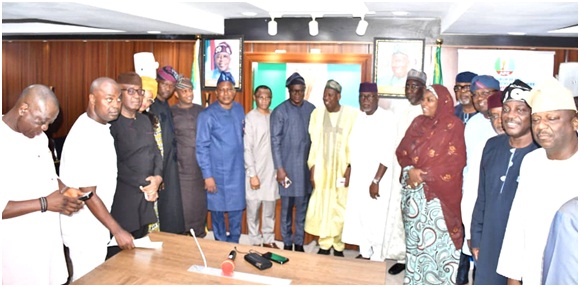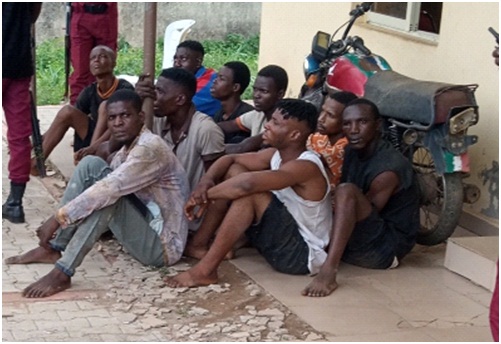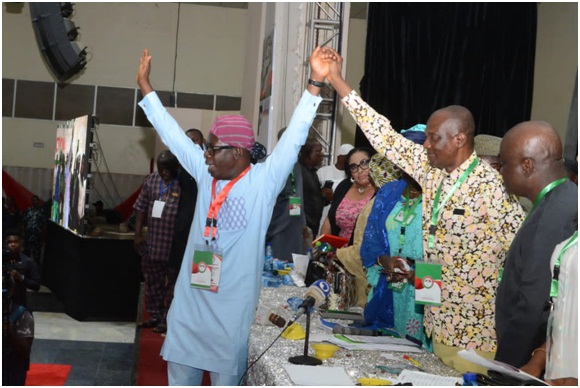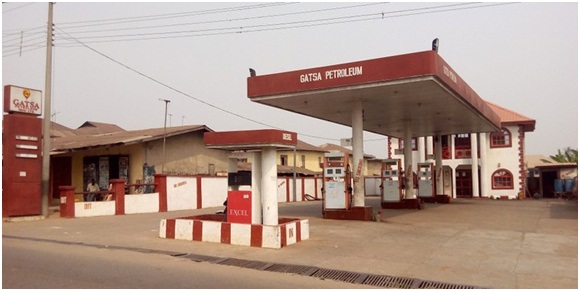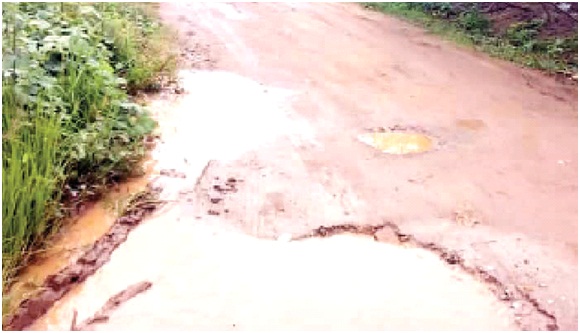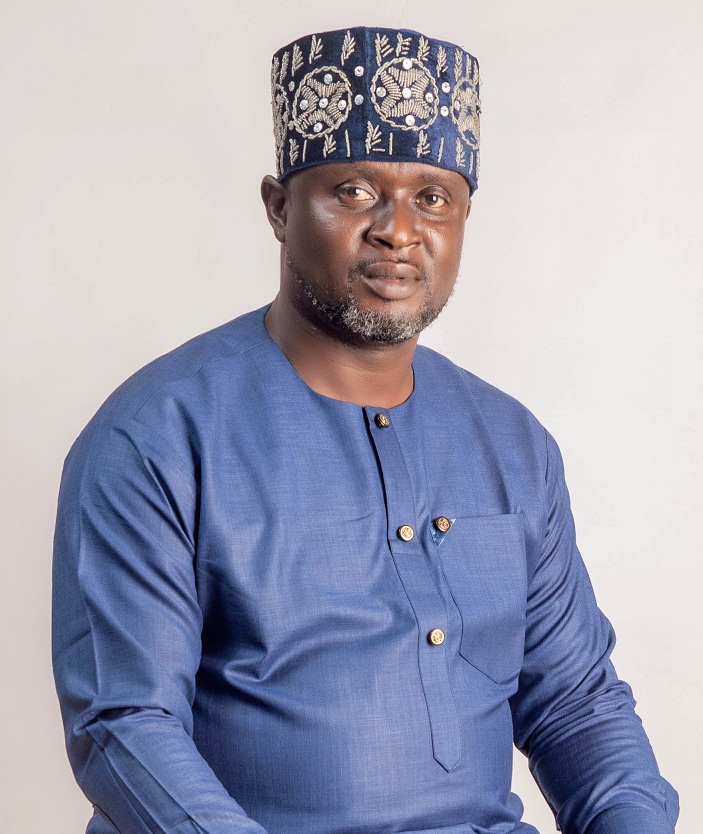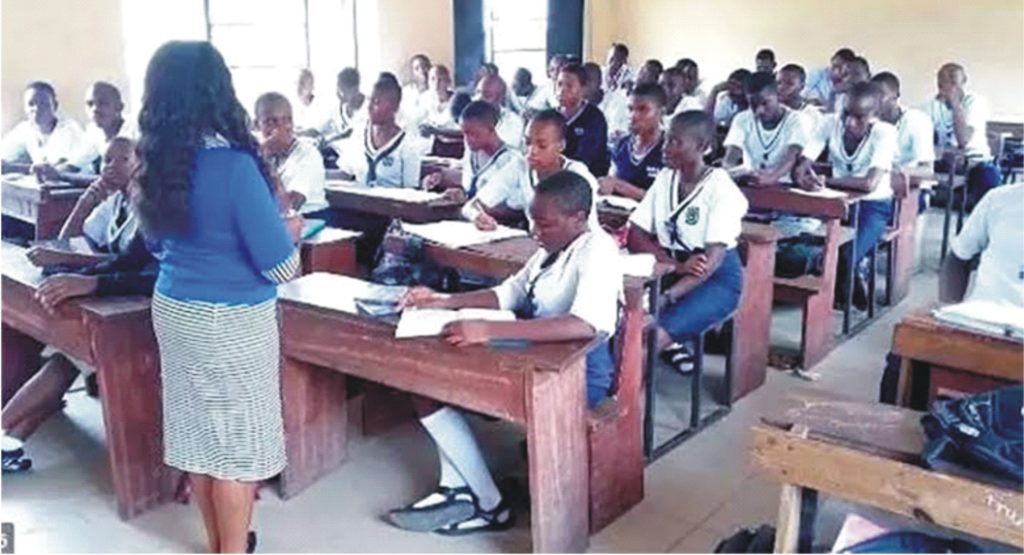How Ondo State can ensure food security
Sunday Fadeni is a multiple award-winning teacher in Ondo State. He specializes in Agricultural Science and is passionate about agriculture. He has been in the teaching profession for over two decades.
In this interview with Saheed Ibrahim, he talked about agriculture in Ondo State and highlighted some of his achievements.”
Who is Mr. Sunday Fadeni?
I am a professional teacher. I started my teaching job 23 years ago at Igbatoro High School, Akure. Presently, I am teaching at Fiwasaye Girls Grammar School Akure. I have passion for this job because I want to see students making it in life. I believe in moulding their minds to acquire knowledge, new skills, new ideas, and new values they need to make it in life.
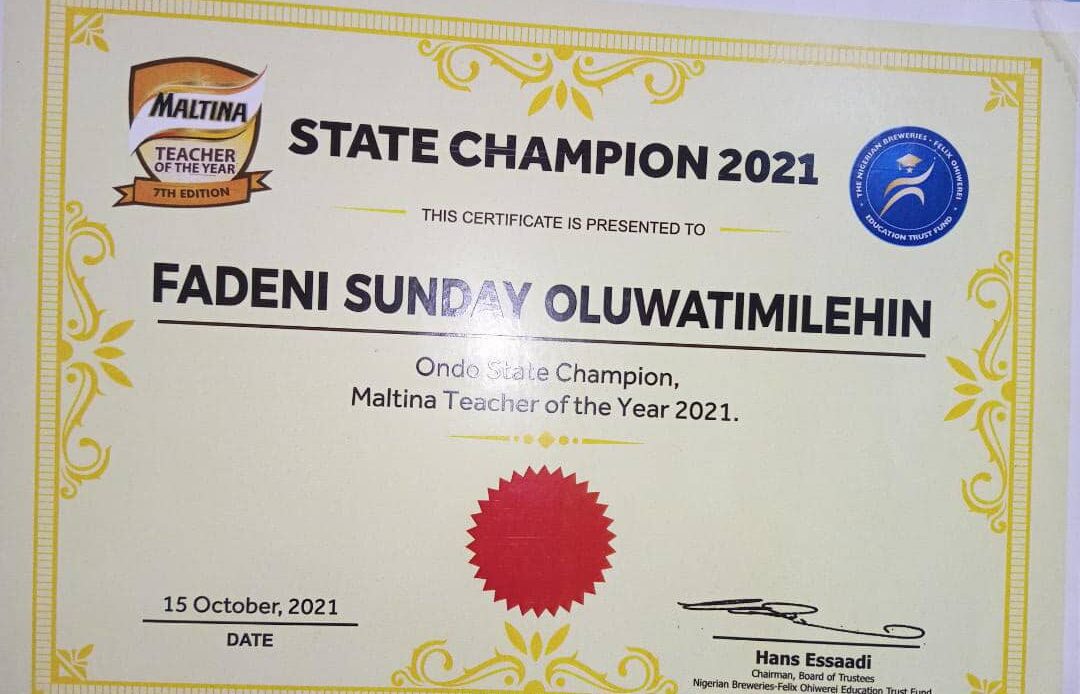
Can you highlight some of your achievements and recognition as a teacher?
I won the Maltina Teacher of the Year award, Ondo State Champion in 2017. I won it in 2021 and was among Nigeria’s top 10 best teachers. To God be the glory. I was the best teacher in 2021 in South West Nigeria. The event was organized by the National Network of Teachers for Good Governance. Apart from that, Ondo State Government honoured me in 2019 as the Best Teacher in Ondo State. In addition, many of my students have graduated from Universities, Polytechnics or Colleges of Education, and they hold high positions in Nigeria today. Seeing them inspires me.
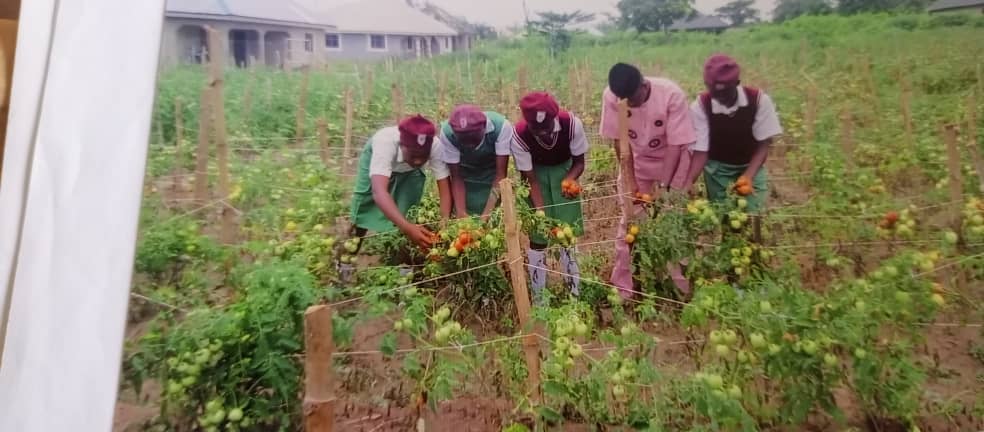
How are you contributing to improving teaching as a profession?
The teaching profession is one that gladdens my heart. I have dedicated the whole of my life to the teaching profession. Also, I mentor newly recruited teachers for them to have knowledge in that particular line and also go to classes, focus on what they are doing in their respective classes, guide them, giving them educational materials that will enable them to discharge their duties as expected. I supply them with online materials or an online site where they can debate and improve their previous knowledge. I always collaborate and interact with my colleagues to share new ideas, innovations, and research because everyday innovations keep coming into the teaching profession every day. There is a need for you as a teacher to read every day to acquire new methods of teaching and evaluating your students. On my own, I always conduct research. From it, I get new methods of teaching, assessing and evaluating students.
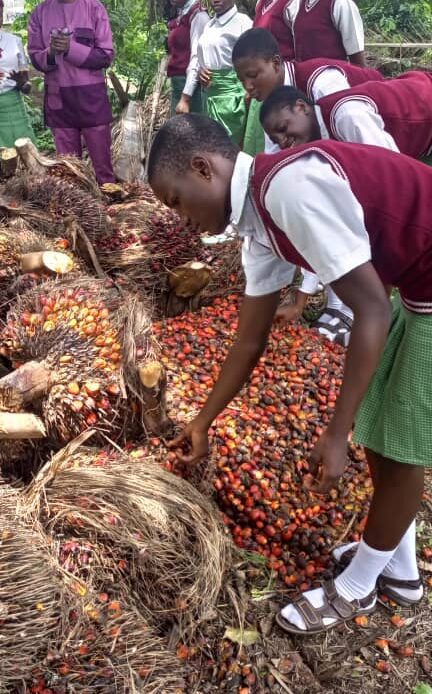
What are your teaching approaches in the classroom?
I use a student-centered approach. Still, before you even say you want to adopt a particular approach, there are some things to consider: You have to consider the background of the students you want to teach. We have physically challenged students who cannot hear properly, see correctly, or reason the way others will.
It would help to consider some things before arriving at a particular teaching method. Now you have to consider the size of the class. The way you teach 10 students is different from when teaching 70 students. Consider the language common to the students and the subject and topic you want to teach. Then, you will know the approach to use. But a good teacher only uses one particular approach because there is no specific approach that is good to impact teaching and knowledge to the students. So we use a combination of teaching approaches. I teach Agricultural Science with actual life activities, making them see real-life examples. I interact with students. We call it collaboration and interaction then we use a practical approach. You take them to the field; make them see what you have explained that you cannot take to the classroom.
How do you manage your classroom?
According to United Nations documents, it is always 30 students to a teacher. Nowadays, you have a teacher with 60 to 70 students in a classroom, and managing them has always been a challenge for teachers. One way we manage the classroom now is to make the students make the rules and regulations; they will write them down so that any students who go against them already know the penalty. Second, we have some students that keep disrupting lessons. We refer them to the counselling department for proper counselling to get the causes of their behaviour. The counsellor may need to call their parents for a better explanation. At times, we use non-verbal cues. For instance, when a student makes noise, you can use your eyes to communicate with them. We also motivate those of good behaviour so if others that they are disturbing notice that, they may be influenced to turn a new leaf.
What do you do in your community aside from teaching?
Being a teacher doesn’t mean limiting yourself to the school and the students; you should be relevant to your colleagues and the community you come from. I form a non-government organisation in my community – Clean Up the World. I affiliate it with another international organisation that embarks on community projects such as encouraging the community to plant trees, keep the environment clean and find solutions to climate change problems we face today. Everybody is saying the weather has changed but some factors caused the changes. So, we need to mitigate the effects of that climate change. One is by planting trees. So, apart from my teaching, I have an NGO that creates environmental awareness for the students, staff in the school and the community at large. Apart from that, we set aside a day in a particular month to gather and think about improving the community. We network through interaction, training workshops, and conferences.
How can the government improve education?
Most teachers in secondary and primary schools are not professionals; they need to be qualified to teach because they need a bachelor’s degree in Education or NCE.So, I will advise the government to make a law that whosoever has no educational qualifications and has not registered with the Teachers Registration Council of Nigeria should be given three years to comply. After three years, if they don’t comply, they should be sent out of the system. Most teachers in private schools are just graduates, but they need to be qualified to teach.
What is happening to farming in schools nowadays and do you encourage it?
There are so many factors. One, the students don’t have interest in farming. Looking at the setup at our various homes, agriculture is not encouraged. In my school, Fiwasaye Girls Grammar School, the principal brings out of the little fund in the school and mobilize the agric teachers. We attach a certain number of students to some seedlings and poultry birds to nurture. Last December, we produced broilers; we attached three to each group of students and they raised them from a day old to the selling point and we made our money. That one gears up students, so that is the system and the approach we use at Fiwasaye Girls’ Grammar School.Also, we ensure Agricultural students in each particular set must have a specific project before they leave from SS1 to SS3. That one encourages them.
We have institutions that offer Agricultural courses in Ondo State but prices of food items in the State are always high. How do we ensure food security?
I can confidently say that Ondo State is Nigeria’s largest cocoa producer, but our problem is infrastructure. There needs to be a good road network for farmers to bring their harvested crops to the city. That is a significant factor. Government should make funds available to farmers either as grant or loan. Government can also provide loans to farmers or liaise with agricultural banks to provide funds for farmers. The government can support them with chemicals to use during pre- and after-planting operations and processing materials after harvest.
What about individuals and communities?
I expect community members to form cooperative societies like my own – Ondo Farmers Link Foundation – that directly link with farmers. We give them inputs, chemicals, and seedlings to grow without collecting money from them. After harvesting and selling, they will pay what they owe us. Apart from that one, the cooperative society will loan them; they would do what they are supposed to do at the appropriate time. Somebody is supposed to plant maize either in April, but because he doesn’t have money, he delays it till May. You know that anything can happen between May, June, and July. Someone can run into a loss. We expect the community to form a cooperative society that would assist one another, especially the farmers. Also, law banning open grazing in Ondo State should be appropriately implemented. Animals should be confined in a fenced area. People are afraid of going to farms because of their experience.
Which crops can Ondo produce in large quantities for food sufficiency and export?
We classify crops into cash crops and food crops. Cash crops are the ones that give us good money when we export them but food crops are the ones that we consume ourselves. For cash crops, we have Cocoa, rubber and palm oil. For food crops, we have maize, yam, cassava and vegetables. We are gradually coming up with tomatoes and pepper too.
We’re experiencing heavy rains destroying property and climate change; what do you recommend?
Everybody should start planting trees within their compounds because it serves as a windbreaker. Nowadays, instead of planting trees, people are busy cutting trees. There is a need for more awareness among students and in communities. We are destroying the ozone layers with bush burning, car and generator fumes and other human activities. We should also limit the use of plastics and nylons. We should practice the 3 Rs of Reduce, Reuse and Recycle. We can use an envelope instead of nylon to pack things. Papers decompose quickly but nylons and plastics don’t. When you use them, dispose them properly. There are a lot of organisations that buy plastics and people can collect and sell them to make money. That will also keep our environment clean of plastics.

